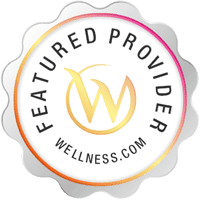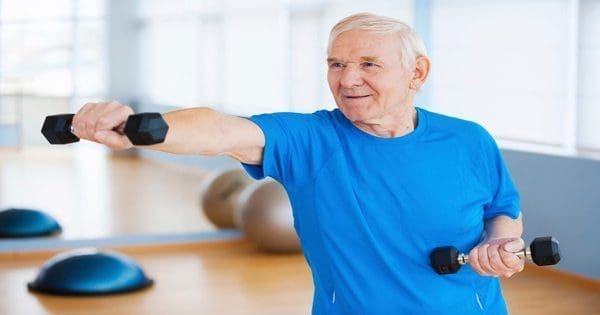As people age, there are some physical changes taking place. Skin changes to become thinner and less elastic and wrinkles appear in greater numbers. We may lose out hair or it can change to shades of gray or white. These are processes that everyone who lives a long life will go through naturally. Barring cosmetic changes, we can’t control the aging of our looks much.
The good news is that we can control the aging of other body physical aspects such as posture and weight.
Other physical changes we face as we age include the following:
- Body weight is usually less in late adulthood because we lose muscle tissue.
- Muscle strength, along with mass, is reduced, causing loss of strength in the legs, arm, and other part of the body. In late adulthood the most apparent loss of strength is usually in the legs.
- Bone loss, or loss of bone calcium, occurs. This will cause changes in the body that are visible. Bone loss is responsible for some weight loss and possibly a stooped posture. A decrease in bone density or osteoporosis may also result.
- Other body functions slow down due to a loss of organ reserve.
Table of Contents
The Importance of Exercise for the Elderly
Reducing the effects of physical changes due to aging is the major reason behind the importance of exercise for the elderly. Exercise is an important tool for improving a large part of the process. Research indicates that many factors can be improved with regular exercise. Benefits of regular exercise include:
- Increased exercise and activities promote well-being and a sense of feeling younger. Feeling younger and more self-confident has been shown to promote good psychological health.
- Exercise is often a social activity, which many experts believe contributes to a healthy state of mind and reduced depression. Exercising is a great way to spend time with friends either at the gym or on a walk at the park.
- The U.S. Department of Health and Human Resources has research that indicates exercising helps people in late adulthood avoid disabilities that may be caused by chronic disease and other illnesses.
- Other studies show that exercise during late adulthood will help decrease the risk of diabetes and increase body function abilities.
Get Started With an Exercise Program
No matter what your age, if you want to begin exercising, the first place you need to stop is your doctor’s office. As a senior, it can be even more important to have a physical exam before starting an exercise program. Also, some medication use is affected by exercise, which your doctor can talk with you about.
There are also other special considerations. For example, it’s important to learn about stretch exercises for seniors because in late adulthood, it’s best to have a long stretching period before your exercise time and a proper cool-down. The best way is to warm up the body with light cardio activity for five minutes, stretch for about five minutes, then begin your exercise routine.
After discussing your exercise options with your doctor, narrow down your exercise plan to ideas you’ll be sure to use. Because of the importance of exercise for the elderly, choose an activity you’ll actually do. If you get dizzy on an exercise bike, switch to something else. If walking is boring to you, try swimming or even walking with a buddy-pairing up can make any activity seem more like fun and less like exercise.
Balance Exercises for Seniors
https://www.youtube.com/watch?v=z-tUHuNPStw
Sourced through Scoop.it from: seniors.lovetoknow.com
The body naturally begins to change with age, often causing the degeneration of bones and joints, as well as other structures. While this process is inevitable, physical activity can help slow down the changes and ensure they happen much more smoothly. Research has demonstrated how exercise can improve other factors of aging.
For more information, please feel free to ask Dr. Jimenez or contact us at 915-850-0900 . 
Post Disclaimer
Professional Scope of Practice *
The information on this blog site is not intended to replace a one-on-one relationship with a qualified healthcare professional or licensed physician and is not medical advice. We encourage you to make healthcare decisions based on your research and partnership with a qualified healthcare professional.
Blog Information & Scope Discussions
Welcome to El Paso's Premier Wellness and Injury Care Clinic & Wellness Blog, where Dr. Alex Jimenez, DC, FNP-C, a board-certified Family Practice Nurse Practitioner (FNP-BC) and Chiropractor (DC), presents insights on how our team is dedicated to holistic healing and personalized care. Our practice aligns with evidence-based treatment protocols inspired by integrative medicine principles, similar to those found on this site and our family practice-based chiromed.com site, focusing on restoring health naturally for patients of all ages.
Our areas of chiropractic practice include Wellness & Nutrition, Chronic Pain, Personal Injury, Auto Accident Care, Work Injuries, Back Injury, Low Back Pain, Neck Pain, Migraine Headaches, Sports Injuries, Severe Sciatica, Scoliosis, Complex Herniated Discs, Fibromyalgia, Chronic Pain, Complex Injuries, Stress Management, Functional Medicine Treatments, and in-scope care protocols.
Our information scope is limited to chiropractic, musculoskeletal, physical medicine, wellness, contributing etiological viscerosomatic disturbances within clinical presentations, associated somato-visceral reflex clinical dynamics, subluxation complexes, sensitive health issues, and functional medicine articles, topics, and discussions.
We provide and present clinical collaboration with specialists from various disciplines. Each specialist is governed by their professional scope of practice and their jurisdiction of licensure. We use functional health & wellness protocols to treat and support care for the injuries or disorders of the musculoskeletal system.
Our videos, posts, topics, subjects, and insights cover clinical matters and issues that relate to and directly or indirectly support our clinical scope of practice.*
Our office has made a reasonable effort to provide supportive citations and has identified relevant research studies that support our posts. We provide copies of supporting research studies available to regulatory boards and the public upon request.
We understand that we cover matters that require an additional explanation of how they may assist in a particular care plan or treatment protocol; therefore, to discuss the subject matter above further, please feel free to ask Dr. Alex Jimenez, DC, APRN, FNP-BC, or contact us at 915-850-0900.
We are here to help you and your family.
Blessings
Dr. Alex Jimenez DC, MSACP, APRN, FNP-BC*, CCST, IFMCP, CFMP, ATN
email: coach@elpasofunctionalmedicine.com
Licensed as a Doctor of Chiropractic (DC) in Texas & New Mexico*
Texas DC License # TX5807
New Mexico DC License # NM-DC2182
Licensed as a Registered Nurse (RN*) in Texas & Multistate
Texas RN License # 1191402
ANCC FNP-BC: Board Certified Nurse Practitioner*
Compact Status: Multi-State License: Authorized to Practice in 40 States*
Graduate with Honors: ICHS: MSN-FNP (Family Nurse Practitioner Program)
Degree Granted. Master's in Family Practice MSN Diploma (Cum Laude)
Dr. Alex Jimenez, DC, APRN, FNP-BC*, CFMP, IFMCP, ATN, CCST
My Digital Business Card


